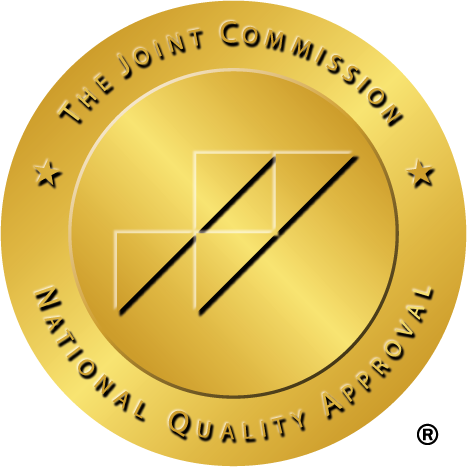At some point in life, you may receive a referral to receive some form of psychological testing. For many people, this can be an intimidating thought and may conjure some negative feelings towards invasive procedures or an uncomfortable series of questioning from a psychiatrist.
However, it’s important to know that psychological tests are designed to be a supportive tool in helping individuals receive the mental health support they need when applicable. It’s also important to know that a psychological test isn’t a one-size-fits-all solution. There are different types of psychological assessments in North Carolina to choose from.
Trained psychologists select a tailored set of assessments and tests for every individual patient and will use a collection of methods to help you or your loved one feel at ease during the entire process.
SPEAK WITH AN ADMISSIONS SPECIALIST
What are Psychological Assessments?
A psychological evaluation, also known as a psych eval, is commonly regarded as the first step to take when identifying and managing mental illness.[1] Psychological assessments are conducted by a trained and licensed psychologist and are used to assist in comprehending the intensity and longevity of mental illness, learning disabilities, or cognitive impairments.
During the testing portion of an evaluation process, standardized and norm-referenced tests are in-depth techniques used to measure an individual’s executive functioning, personality factors, skill sets, and ability to learn different topics. These tests determine an individual’s proficiency levels compared to others in their same age, grade, or intellectual capabilities.
Also, most of these tests are completely adaptable to an individual’s comfort level and abilities and can help to determine if an individual may be experiencing an underlying condition or disorder.
Characteristics of Psychological Tests
Although there are different types of psychological tests that can be taken, each test will have specific characteristics that make it something that mental health professionals can use when supporting their diagnoses. These characteristics include:
Reliability
A psychological test is reliable when it produces consistent results regardless of when and where it is administered. The tests that are taken should produce the exact same, or very similar results each time.
Validity
The results taken from the test should accurately measure the areas of cognition or personality traits it is designed to assess.
Objectivity
The test needs to be administered in a completely neutral and unbiased setting and the interpretation of test measurements or results should also be free from personal thoughts or feelings.
Standardization
Regardless of the type of test given, there should be a standardized checklist in place that outlines where the test is given, materials required, and the amount of time allotted for the test.
What are the Different Types of Psychological Tests?
Personality Tests
Personality tests are evaluations designed to gain information regarding a person’s personality traits and their overall demeanor. Personality assessments uncover interpersonal ability, ethical standards, inclination toward introversion or extroversion, and general driving motivations.
Achievement Tests
Achievement tests are a method for identifying emotional intelligence in educational and training settings. These questionnaires are often used to establish suitable academic placements for students, however can also be valuable in psychological testing to rule out certain developmental disabilities.
Attitude Tests
An attitude test, as the name denotes, is a test that measures an individual’s personal feelings toward different topics, such as personal beliefs, values, religion, and other areas that help to get a better understanding of the individual’s outlook on life.
Aptitude Tests
An aptitude test, also known as an IQ test, is a type of intelligence test utilized to assess the test-taker’s natural abilities and potential to excel in a particular field. These assessment tests presuppose that individuals possess distinct strengths and weaknesses, and that their innate characteristics influence their success or failure in specific areas.
Neuropsychological Tests
A neuropsychological test is an assessment designed to evaluate an individual’s cognitive abilities, including their mental abilities, language proficiency, attention span, memory retention, reasoning skills, problem-solving aptitude, and emotional disposition.[2]
This test effectively measures the functional status of the brain and provides insights and recommendations for addressing any underlying issues or concerns.
Projective Tests
Projective tests are a personality evaluation tool that requires individuals to respond to certain scenarios, words, or images, and sometimes even draw their feelings. These psychometric tests, like the Rorschach Inkblot test, are distinct from objective tests because there are no right or wrong answers, and the responses can be diverse.
Observation (Direct) Tests
Direct observation tests are a form of psychological assessment that involve observing individuals engaging in predetermined activities in a controlled setting. This technique is predominantly used to investigate children’s behavior and competency levels, specifically in social interactions with their friends and family members.
SPEAK WITH AN ADMISSIONS SPECIALIST
Psychological Test FAQs
Psychological tests can range in complexity and duration. For example, some tests can be completed in as little as 30 minutes, while others may take several hours.
The accuracy of the psychological test taken will depend on its reliability and validity compared to other types of examinations.
Psychological tests are administered in a few different ways. While most are completed during a clinical interview in a healthcare setting, other tests can be distributed over the phone or online by a trained psychologist or counselor.
Psychological test results can sometimes be used as evidence in legal situations. This can include child custody disputes or criminal cases. However, the admissibility of these results depends on different factors, including how reliable the tests are known to be and the qualifications of the person administering the test.
After completing a psychological test, the test administrator will analyze the results and provide feedback based on the findings.[3] This will typically include a diagnosis and available treatment options to help address it.
Book Your Psychological Assessment Today
There are many reasons why someone might want to get a psychological assessment. But regardless of your reasons, it’s essential that you feel like you can share your thoughts and feelings in a safe place with trained psychologists who can give you the support you need.
At New Waters Recovery, our highly trained clinicians work closely with you to uncover all areas of your mental and physical health while giving you vital feedback to assess any necessary treatments while helping you live the very best life possible.
Related Topics
Sources
[1] Mental status examination – StatPearls – NCBI Bookshelf. National Library of Medicine. (n.d.-b). https://www.ncbi.nlm.nih.gov/books/NBK546682/ on May 15, 2023
[2] Harvey, P. D. (2012, March). Clinical applications of neuropsychological assessment. Dialogues in clinical neuroscience. https://www.ncbi.nlm.nih.gov/pmc/articles/PMC3341654/ on May 15, 2023
[3] Psychological testing in the service of disability determination – NCBI … National Library of Medicine. (n.d.-d). https://www.ncbi.nlm.nih.gov/books/NBK305236/ on May 15, 2023


